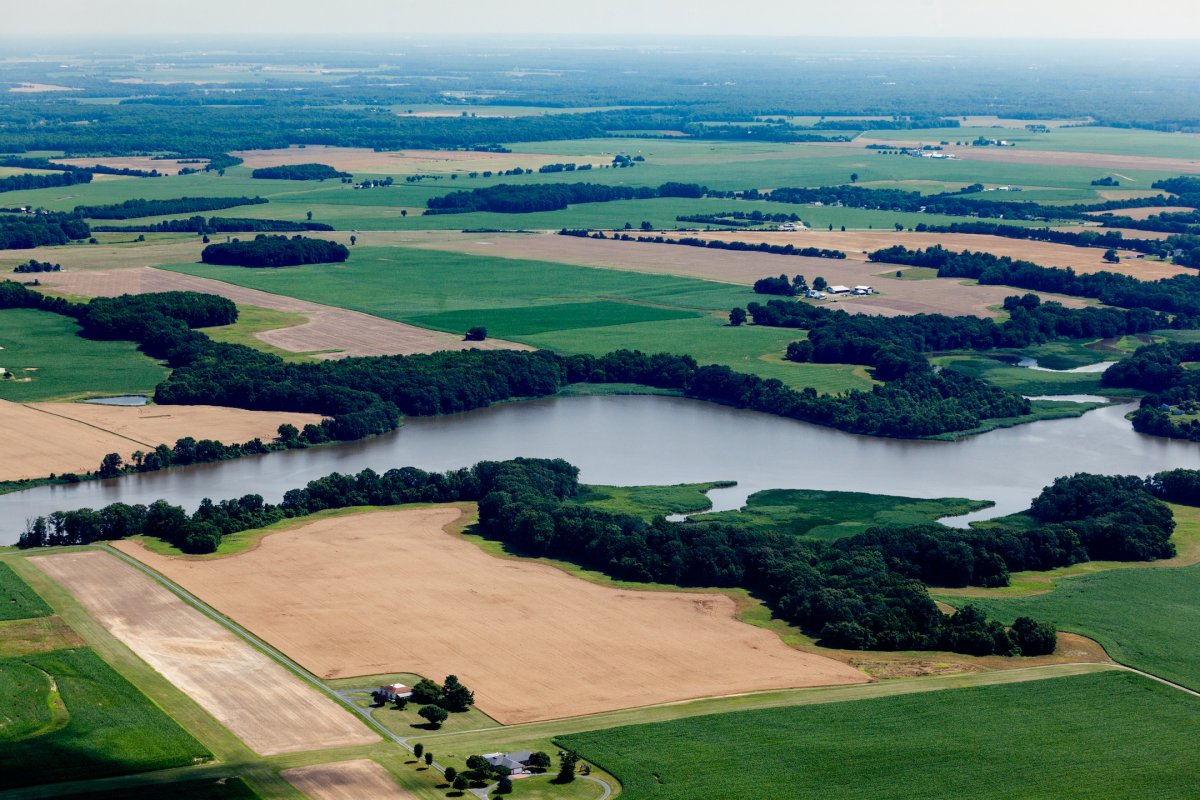It is no longer possible to reject the fact that Earth's climate is warming and that burning fossil fuels is the primary cause. It must also be admitted that the Chesapeake Bay's abysmal water quality is due to receiving too much of the nutrients nitrogen and phosphorus, mostly from crop fertilization now that significant reductions in point-source pollution from wastewater facilities have been achieved.
But there are lessons to be learned for the Bay from the battle over climate change. While the "old war" of debating the cause of global warming is over, the strategy being used by inactivists (greenhouse gas polluters) tries to block action that would negatively impact their profits. In his book, The New Climate War, Michael Mann argues that in order to impede action against them, the polluters bamboozle the public using denial, disinformation, delay, doomsaying and deflection—key elements of the "tobacco strategy" as outlined by Erik Conway and Naomi Oreskes in the book, Merchants of Doubt.
It's the same for the agricultural pollution of the Chesapeake. Crop fertilization practices intended to maximize yields (profit) and provide cheap food cause most of the nutrient pollution that degrades Bay water quality. To continue to benefit from cost-free pollution, the polluters employ the same strategies that Mann outlines to ensure that little is done to reduce the pollution, such as:
• Denial: "Farmers use nutrients efficiently." Many do not. It is widely accepted among crop scientists that, depending on the practice, as much as half of the applied nutrients in chemical fertilizer are not removed from the field with the crop, so the rest contributes to water pollution.
• Disinformation: "Lawns are the problem; lawn fertilization needs to be regulated." Lawn fertilization is insignificant compared with nutrient pollution from crop fertilization. Or, "Grow and harvest oysters to remove the pollution." It is impossible to grow enough oysters to filter even a small fraction of agricultural pollution. Then, there is: "The Conowingo dam is the problem." It certainly is a problem, but the problem is inefficient crop fertilization. Issues like this must always be quantified.
• Delayism: "We need time to impose regulations and change society's expectations." So "business as usual" continues, as does pollution.
• Doomism: "There is nothing we can do about it, so why try?" Nonsense! We can do something about it. Stop polluting.
• Defleflection: "Individuals' lifestyles must change." Especially this. As true as it may be, it won't make a difference if we don't stop inefficient fertilization and burning fossil fuels. That is the only way to solve the problems.
As Mann outlines, the actions of individuals can be positive, but they are always quantitatively insufficient to solve the pollution problem. Shifting responsibility away from the polluters and onto individuals does little to reduce pollution, and the profits continue unabated. Beware if you are asked to change your behavior but the polluter is not!
Disposing of animal and human waste (poultry litter, manure or sewage sludge) by land application causes more nutrient pollution than even the worst kind of chemical crop fertilization. It is now the "lowest hanging fruit" and constitutes nearly 20% of Bay nitrogen pollution and a quarter of its phosphorus pollution, according to the Chesapeake Bay Program.
To protect water quality, the disposal of animal waste by land application should be governed by one simple sentence instead of existing complex and permissive regulations: The land application of animal waste shall be limited to supplying the phosphorus needs of the next crop, based on a soil analysis for phosphorus. The technology to safely and economically produce natural gas from animal waste is advancing rapidly and should be encouraged.
In his book, Mann suggests several strategies to confront those who continue to advocate the burning of fossil fuels. These strategies also apply to the Bay.
Identify and call out the deniers, deflectors and doomsayers. They are focused on protecting their profits and should be challenged forcefully at every opportunity.
Focus on education, especially of children. They will inherit the mess we are creating, and many of them know it. Focus adult education on citizens who are reachable, teachable and movable.
Retool the capitalist system to account for all costs. The disposal of poultry litter by land application in the guise of "free fertilizer" certainly increases the profitability of the poultry industry, but does it save money for society if the cost of degraded water quality is honestly accounted?
Mann claims that societal behavioral change, enforced intergovernmental agreements and technological innovation—working together—are all needed. It remains to be seen if we can successfully address global warming, water quality and other challenges faced by our overpopulated planet.
Lynton S. Land is emeritus professor of geological sciences at the University of Texas in Austin and now lives in Ophelia, VA. This article first appeared in the Bay Journal and was distributed by the Bay Journal News Service. The author's views do not necessarily reflect those of the Bay Journal.
Don't fall for denial and disinformation: Ag pollution is real

An aerial view of Southeast Creek, a tributary of the Chester River, is surrounded by farmland in Queen Anne's County, Md., (Photo by Will Parson/Chesapeake Bay Program)


